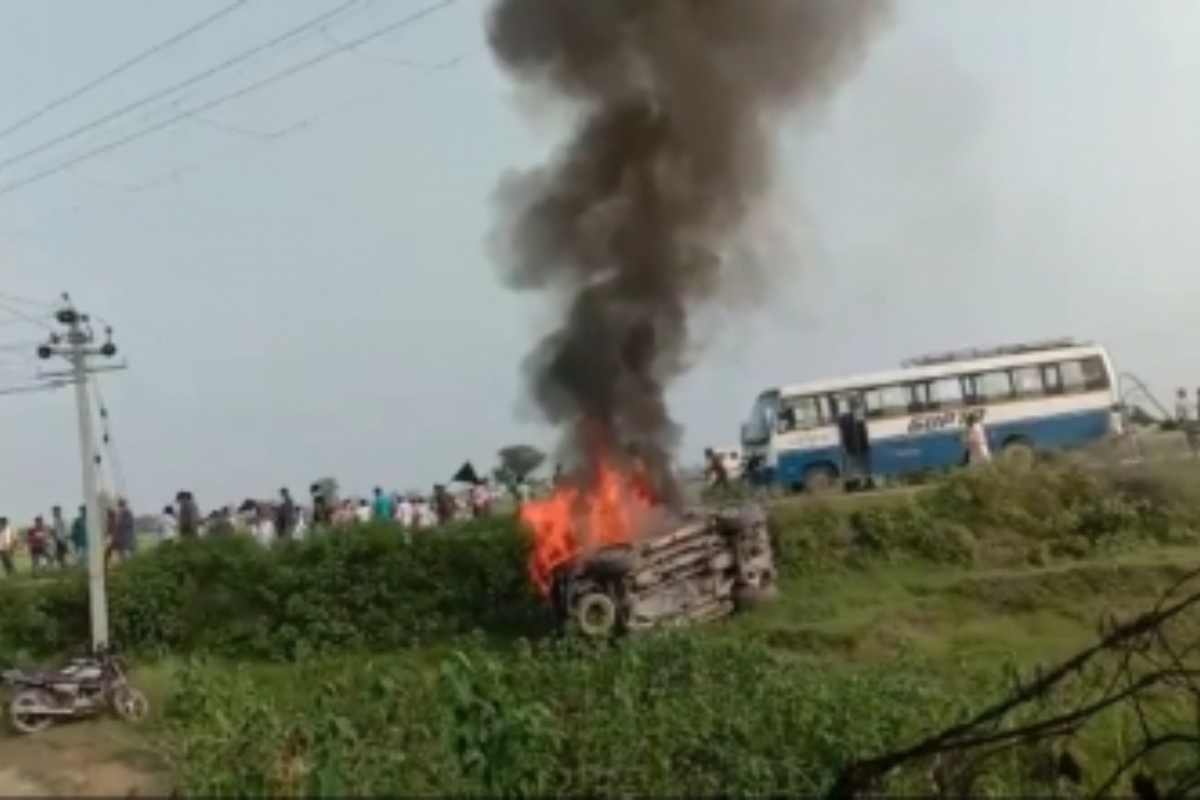Constitutional Whispers
There are several troubling aspects to the Apex Court’s interventions in the R G Kar case, argues Debarshi Chakraborty.
The Supreme Court on Tuesday said the trial in the Lakhimpur Kheri violence case, which involves the son of Union Minister Ajay Kumar Mishra as an accused, is not “slow paced”.

Lakhimpuri Kheri violence [Photo: IANS]
The Supreme Court on Tuesday said the trial in the Lakhimpur Kheri violence case, which involves the son of Union Minister Ajay Kumar Mishra as an accused, is not “slow paced”.
On January 25, the Supreme Court granted interim bail for eight weeks to Ashish Mishra and directed him to leave Uttar Pradesh within one week of his release from jail.
A bench comprising Justices Surya Kant and J.K. Maheshwari directed the sessions judge dealing with the trial of the case to keep apprising it about the future developments of the trial.
Advertisement
Advocate Prashant Bhushan, representing the victim families, submitted before the court that about 200 prosecution witnesses have to be examined, while expressing concern about the “slow pace of the trial”. The bench replied that the trial is not slow paced and the court has received three letters from the trial judge.
Senior advocate Mukul Rohatgi, representing Ashish Mishra, submitted that after the apex court order his client was released from jail and he has appeared before the trial court on every date of hearing.
Citing the January 25 order, the bench said the interim direction contained in this order would continue to operate. Pointing at the content of the letters received from the First Additional District and Sessions Judge, Lakhimpur Kheri, the bench said examination of three witnesses is over while cross-examination of one of them is going on.
The bench said, “We are not using the word monitoring but we are having indirect supervision on the trial and we will do that…”
Citing the January 25 order, the bench added that let this status continue for some more time and added that the trial court should continue to apprise it of the future developments of the trial and scheduled the matter for further hearing in May.
In January, the apex court imposed a slew of conditions while granting bail to Mishra: he will have to leave UP within one week of his release; he cannot stay in UP or NCT of Delhi/NCR; Mishra shall inform court about his location; and any attempt by his family members or Mishra himself to influence witness will lead to cancellation of his bail.
It further added — Mishra will have to surrender his passport; he will not enter the Uttar Pradesh except to attend the trial proceedings; and, the prosecution, SIT, Informant or any family member of the victims of the crime will be at liberty to promptly inform this court of any incident of misuse of the concession of the interim bail.
“The petitioner shall appear before the Trial Court on every date of hearing and no adjournment shall be sought on his behalf. If the petitioner is found involved in prolonging the trial, it shall be taken as a valid ground to cancel the interim bail,” said the bench.
On October 3, 2021, eight people were killed in Lakhimpur Kheri district’s Tikunia in a violence that erupted when farmers were protesting against UP Deputy Chief Minister Keshav Prasad Maurya’s visit to the area.
According to the Uttar Pradesh Police FIR, four farmers were mowed down by an SUV, in which Ashish Mishra was seated.
Following the incident, a driver and two BJP workers were allegedly lynched by angry farmers. A journalist also died in the violence.
On December 6 last year, a trial court had framed charges against Ashish Mishra and 12 others for the alleged offences of murder, criminal conspiracy and others in the case of death of the protesting farmers in Lakhimpur Kheri, paving the way for the start of the trial.
Advertisement